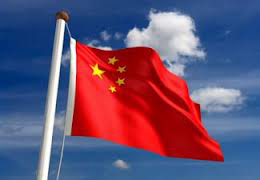Baku, Azerbaijan, April 14
By Azer Ahmadbayli – Trend:
There are several nations in the world that are used to being called “a superpower.” All of them are actually engaged in the same affairs – economic expansion, fighting over markets, control over energy resources and trade corridors. However, ways to achieve the goal are different.
China teaches its competitors a lesson how to run things. While, relying on force, the US and Russia are butting in Syria, China continues to conquer the next local or regional market.
China is the owner of excellent muscles too, but it prefers “to subdue the enemy without fighting”, as was recommended by the Chinese legendary strategist of the 6th century B.C. Sun Zi in his famous “The Art of War.”
The other two superpowers have a glorious history and their own sages, but China still looks like their great-grandfather.
Energy issues play a key role with regard to Russia's national interests.
In Russia, oil production at traditional oil and gas fields in Western Siberia, the Urals and other regions is declining. By 2035, production there will be reduced by about half, Russian experts from the Skolkovo think-tank say.
Abundant occurrences of hydrocarbons discovered in recent years in the Eastern Mediterranean, in addition to the existing resources in Iran, Iraq and Syria itself, are the potential and closer sources of exports to Europe, which is one of the most comfortable and payable markets.
As an option, it would be attractive for Russia to manage hydrocarbon flows from the friendly ME states rather than to drag them for thousands of kilometers from Siberia to Europe.
This absolutely doesn’t suit the US, which has had its own view on sources and routes of delivery of the ME oil and gas to Europe.
The Carter Doctrine of 1980, which is still in force, clearly states that “the United States would use military force, if necessary, to defend its national interests in the Persian Gulf and South-Western Asia.”
So, partners, as they often call each other, had insurmountable odds in this matter, resulting in a war in Syria, which has lasted for seven years and left half a million dead.
Sun Zi warns: “There is no instance of a nation benefiting from prolonged warfare.”
I once read a phrase that has impressed me much (I quote from memory): “The world should be grateful to the Chinese leaders for their ability to feed one billion people and keep them within their borders.”
Despite its tremendous population and ability to flex its military muscles to the world, China goes the way different from that the other two superpowers are going. Chinese way is the way of the 21st century.
Since the late 1970s, that is, since the time of Deng Xiaoping, China has not been a party to any major conflict, keeping a low profile and preferring to use economic instruments for expansion.
At the same time, the United States and Russia (USSR) participated in numerous bloody conflicts.
Until peace reigns, China has no equal in the superpowers' race. Therefore, voting in the UN Security Council, China usually dampens decisions that can lead to any destabilization or military confrontation.






